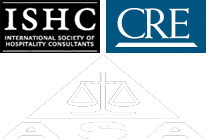Common Issues with Hotel Management Agreements in California
By : admin | Category : Hotel Management & Franchise Agreements | No Comments
6th Jul 2015
Securing and managing hotel management agreements in California can be a difficult task even for the most experienced businessmen. These hotel management agreements in California usually come with a large number of clauses that need to be analyzed and scrutinized by an experienced team of attorneys and consultants that can provide the legal and business counsel needed in order to find–and resolve–some of the most common issues that naturally come with these agreements. If you are currently going through the process of securing a hotel management agreement, then you should learn how to identify some of the most common issues in these agreements.
The first step towards identifying some of the key issues with hotel management agreements is defining which parties will own, market and operate the hotel. In some cases the property will be owned by one party, marketed by a hotel brand, and operated by a third party. In other cases, the property will be owned and managed by the same party, but branded and marketed by a national hotel chain.
In the competitive world of hotel operations, it is only natural to assume that we will run into issues during the early stages of operation. Take for example, changes in management; keep in mind that during the structuring phase of the hotel agreement, a hotel management company may be established, but if this is to change after the agreement has been completed, it might be necessary to switch over to a different operator, who might be better suited to bring more net operating income to the bottom line. We also need to consider the relationship with the brand. Some franchisors are becoming increasingly focused on the positioning of the hotel rather than the profitability of the franchisee. Whichever may be the case, sound advice during the structuring of these agreements can assist in protecting your interests in the hotel investment.
Archives
Categories
Recent Posts
- Help with Due Diligence with Hotel Development Consulting in California
- How a Non-Lawyer Hotel and Real Estate Arbitrator in California Helps
- Valuation Methods from Hotel and Real Estate Appraisals in California
- What Has Your Resort Development Expert in California Done for You Lately?
- Essential Elements of Hotel Concession Contracts in California



